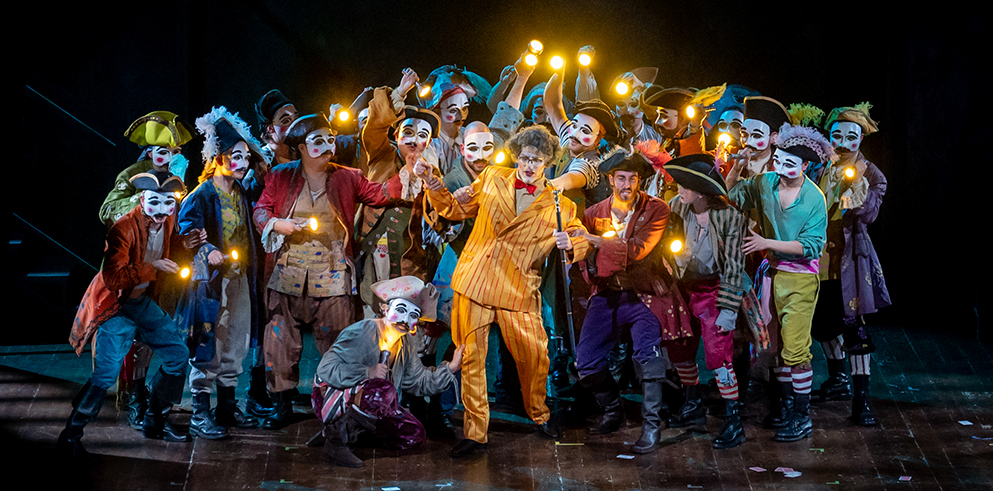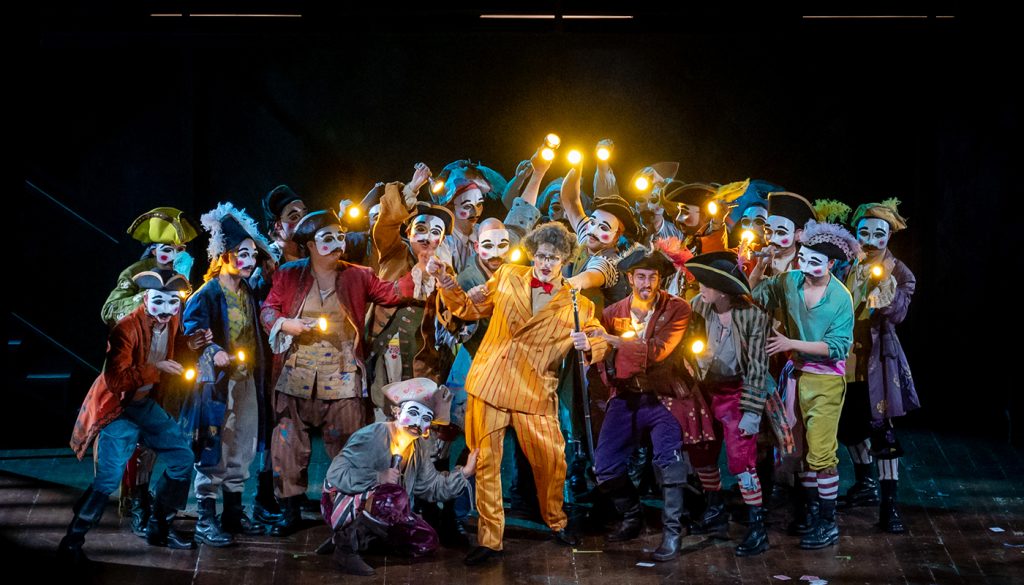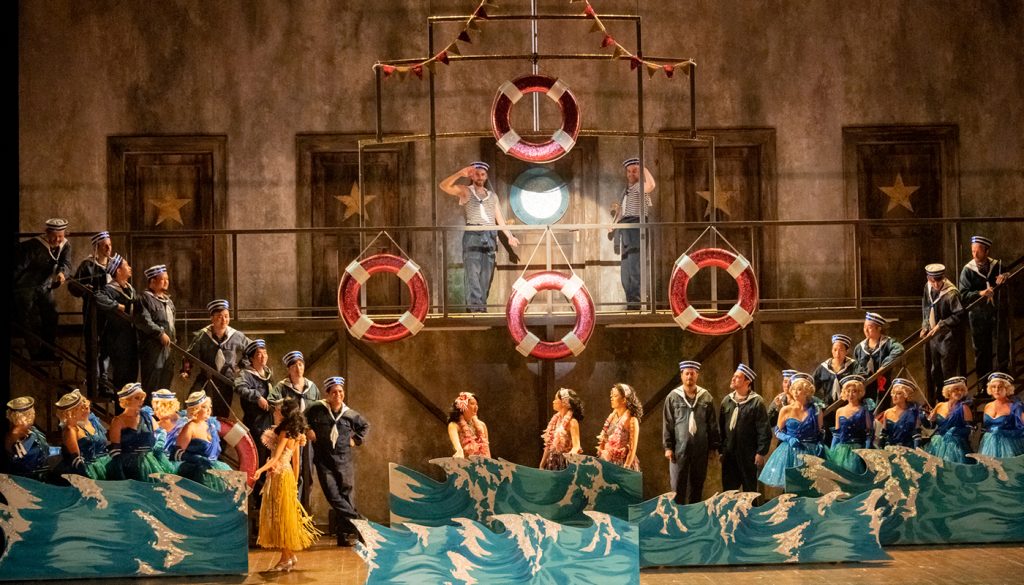The Teatro Donizetti is a true institution in the city of Bergamo. It was built in the late 18th century and was originally named Teatro Nuovo (new theatre). It has been the city’s most important opera house for more than two centuries and hosts an extremely intense schedule of plays, operas and symphonic music.
In November 2022, Claypaky signed an agreement with the Teatro Donizetti to supply our new Sinfonya Profile 600 moving heads, specially designed for use in theatres.
Our Sinfonya Profile fixtures have enhanced the lighting stock at the Teatro Donizetti in Bergamo’s città bassa (the relatively more modern “lower town”) and at the equally famous Teatro Sociale in the città alta (the hilltop medieval “upper town”), which is also part of the Teatro Donizetti Foundation.
Lighting Designer Emanuele Agliati of K 5600 Design told us how he used our Sinfonya Profiles for the opera semiseria Chiara e Serafina: “I used the Sinfonya fixtures mainly for side lighting, which often acted as key lighting. This opera is a dramaturgical reworking of the original libretto in a 1930s variety show setting. I tried to reproduce the atmosphere of those years as best I could by using very warm lights and huge contrasting shadows.”
The Sinfonya Profile 600s were installed on battens about twelve feet above the singers. “I used them for two purposes. Firstly, to recreate the warm atmosphere typical of incandescent light sources, in perfect combination with the PARs and Svoboda ADBs already installed in the opera house. Secondly, when the scene suggested, they conjured up cooler atmospheres, with peaks of up to 7000K-8000K. I kept to these two different colour temperatures throughout the whole opera, and the Sinfonyas were perfect in allowing me to recreate every shade required.”
Emanuele Agliati also told us that he predominantly used blue for the night-time scenes but chose pastel shades: “LED light units normally have highly saturated hues and colours. So, I was concerned about getting the right shade. I wanted to avoid an ‘electric blue’ effect at all costs. The Sinfonya Profiles provided an almost endless colour palette, and very soft pastel shades, which were perfect for building the scenes.”
The Sinfonya Profile has a wide colour temperature range from 2500K to 8000K. Its five-LED-source combination means it can generate a ‘rich’, versatile white.
Emanuele Agliati explained that the lighting loses some of its nostalgic atmosphere in the second act, and colours appear: “Again, the Sinfonya Profile provided me with perfect support: soft colours, in just the right amount, without green peaks. I worked with a very wide zoom, to paint the whole scene.”
Colours were used even more in the show “Chiara or Serafina?”, a reworking of the original opera for children. Soft but intense colours were chosen to recreate positive and negative feelings to adapt the opera for a very young audience.
Agliati told us more about the Sinfonya Profile’s outstanding features: “This light is truly excellent in every way. It performs really well when I use the zoom, focus, gobo, shaper and dimmer all at the same time. I can get all the beam shapes I want with great precision. I can even focus both the gobo and the beam-shaping blades perfectly. In a moving head for theatrical use, this is definitely a winning plus.”
Since they were used for side-lighting, the lighting designer had to pay attention to the sharpness of the beam, while using the blades to shape it and the gobos to recreate a beach, the sun, a forest, or the window of a derelict building, as required.
Emanuele then went into detail over two very innovative features of this unit: “I was extremely curious about the way Claypaky’s much vaunted ‘absolute position’ function worked. I must say that I have now experienced the enormous benefits of this feature first hand. Firstly, since the unit no longer moves back to a reset position when you switch off, there is no risk of it hitting things in the wings. You can therefore install the unit in tight spaces or where it would not normally be possible, such as on the proscenium or in front of the fire curtain. Secondly, there is no risk of the batten that carries the lights swaying. Moreover, the precise return of the beam shaper to its previously programmed position was also very useful, and crucial in my case.”
A last well-deserved mention went to the Sinfonya’s very quiet operation: “I know that the fixture comes with a number of features to cut the noise down to a minimum. I didn’t even have to adjust the fans: no one complained, even though I was using the light at full power on the battens directly above the heads of the singers and stage performers.”
The Donizetti Festival Season also featured performances of the operas “La favorite” and “L’Aio nell’Imbarazzo”, with lighting design by Peter Van Praet.




